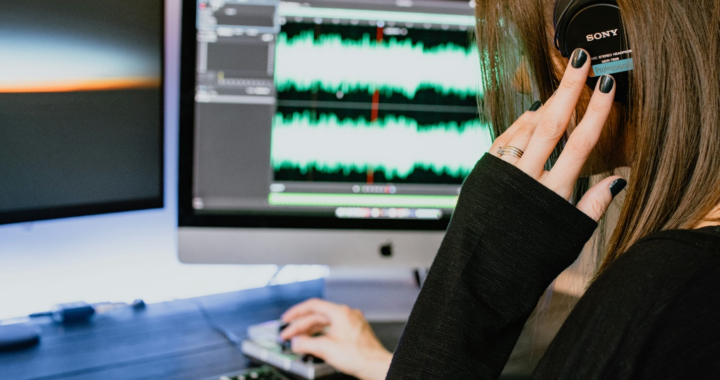Audio forensics is a specialized field within digital forensics that deals with the acquisition, analysis, and evaluation of audio recordings. The primary goal of audio forensics is to enhance, clarify, and authenticate audio evidence that could be critical in solving legal cases. To accomplish this, various types of equipment used in audio forensics are employed by audio forensic experts to ensure accuracy and reliability.
Essential Equipment Used in Audio Forensics
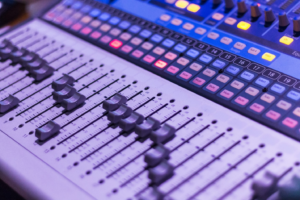
Audio forensics involves a range of tools and equipment designed to extract and analyze sound recordings, whether they come from analog tapes, digital recordings, or other sources. Below is a breakdown of the key pieces of equipment used in audio forensics and their functionalities.
1. Audio Enhancement Tools
One of the primary tasks in forensic audio services is to enhance audio recordings to make them clearer and more intelligible. Audio enhancement tools are designed to reduce noise, filter out unwanted sounds, and amplify low-volume audio segments. These tools typically include equalizers, filters, noise reduction software, and dynamic range compressors.
- Equalizers adjust the balance between frequency components. For instance, if a voice recording is too bass-heavy, an equalizer can boost the higher frequencies to make speech clearer.
- Noise reduction software targets specific types of background noise, such as hums, hisses, or environmental sounds, and suppresses them without affecting the primary audio.
- Dynamic range compressors help in managing the volume levels, making softer sounds more prominent and reducing the impact of louder sounds, which is particularly useful in clarifying spoken words.
2. Authentication Tools
Authentication is a critical aspect of forensic audio services, where the goal is to verify whether a recording is genuine or has been tampered with. An audio forensic expert uses a variety of software tools designed to detect signs of editing or manipulation.
- Spectral analysis software allows experts to visualize the frequency spectrum of an audio file. Any unusual patterns or inconsistencies in the spectrum can indicate potential tampering.
- Waveform analysis provides a visual representation of the audio signal over time. By closely examining the waveform, a digital forensic engineer can identify cuts, splices, or other alterations that may have been made to the recording.
- Metadata examination tools extract hidden data from audio files, such as timestamps or editing history, which can provide clues about whether a file has been altered and when.
3. Voice Identification Tools
In many cases, audio forensic services involve identifying individuals based on their voice characteristics. Voice identification tools are specialized software applications that analyze various features of a person’s voice.
- Voice biometrics software measures unique vocal characteristics, such as pitch, cadence, and accent, and compares them against a database of known voices. This can be invaluable in criminal investigations where voice identification is necessary.
- Formant analysis tools focus on the resonant frequencies of a person’s vocal tract, which are unique to each individual. By analyzing these formants, a digital forensic engineer can create a vocal profile for comparison purposes.
4. Speech-to-Text Conversion Tools

Another essential set of tools in forensic audio services is speech-to-text conversion software. These tools transcribe spoken words into text, making it easier to analyze and cross-reference audio recordings.
- Automatic transcription software utilizes advanced algorithms and machine learning models to convert spoken language into written text. This is particularly useful when dealing with long recordings, allowing audio forensic experts to quickly sift through content and identify relevant sections.
- Phonetic search tools allow investigators to search for specific phrases or words within large volumes of audio data, significantly speeding up the review process.
5. Sound Analysis Tools
Sound analysis tools are essential for understanding the environmental context of an audio recording. They can help determine the location, distance, and nature of sounds, which is vital for reconstructing crime scenes or verifying testimonies.
- Acoustic analysis software evaluates sound properties, such as reverberation and echo, to provide clues about the recording environment. This can be particularly helpful in determining whether a recording was made indoors or outdoors.
- Directional microphones and beam forming technology are used to isolate specific sounds or voices in a noisy environment, making it easier for an audio forensic expert to focus on pertinent audio data.
How Does Audio Forensic Equipment Work?
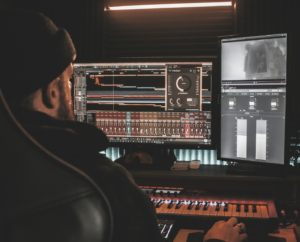
Understanding the functionality of equipment used in audio forensics is crucial for appreciating its role in forensic investigations. The tools and software employed in audio forensics are designed to address various challenges that might arise when dealing with audio evidence.
For instance, a digital forensic engineer might use a DAW combined with forensic audio software to analyze a recording suspected of being tampered with. The software can help identify unnatural patterns or interruptions in the audio signal, which could indicate edits or splices. On the other hand, noise reduction tools work by analyzing the frequencies present in a recording and filtering out those that are not consistent with the natural background noise or speech frequencies. This process helps in enhancing the clarity of the recording, making it easier for audio forensic experts to extract valuable information.
Role of Audio Forensic Experts in Solving Cases
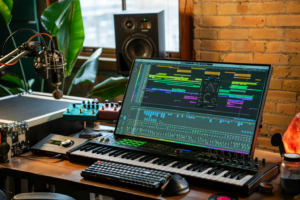
Audio forensic experts play a vital role in solving legal and criminal cases. Their expertise is often called upon in situations where audio evidence is available but may not be immediately clear or trustworthy. These professionals are skilled in using the equipment used in audio forensics to analyze, interpret, and present audio recordings in a manner that is admissible in court.
1. Analyzing and Authenticating Audio Evidence
One of the primary roles of an audio forensic expert is to analyze audio recordings to determine their authenticity and integrity. In legal cases, it is vital to ensure that the audio evidence presented has not been tampered with or altered in any way. Experts use specialized tools and techniques, such as spectral analysis and waveform analysis, to examine recordings for signs of editing or manipulation.
For example, if there is a suspicion that a recording has been cut or spliced to misrepresent a conversation, the expert can detect inconsistencies in the audio signals or metadata that indicate tampering. By verifying the authenticity of recordings, audio forensic experts help ensure that only genuine, unaltered evidence is used in court, maintaining the integrity of the judicial process.
2. Enhancing Audio Quality for Clarity
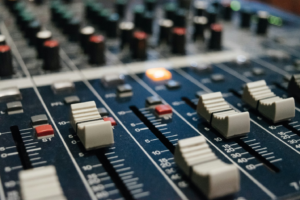
In many cases, the audio recordings that are submitted as evidence are of poor quality due to background noise, low volume, or technical issues during recording. Audio forensic experts use enhancement tools to improve the clarity of these recordings, making it possible to hear critical details that might otherwise be missed.
For example, in a criminal investigation, a recording of a suspect’s conversation might be crucial, but background noise from a busy street could obscure the voices. By applying noise reduction software and other audio enhancement techniques, the expert can isolate the speech from the noise, allowing investigators to understand what was said more clearly. This enhanced audio can provide valuable insights and help confirm or refute allegations, playing a significant role in solving the case.
3. Voice Identification and Speaker Comparison
Identifying the speaker in an audio recording can be vital in criminal investigations, particularly in cases involving threats, confessions, or covertly recorded conversations. Audio forensic experts use voice identification and speaker comparison tools to match a recorded voice to a known individual.
These experts analyze unique vocal characteristics such as pitch, tone, accent, and speech patterns, comparing them against a database of voices or a sample provided by a suspect. For instance, if a threatening phone call was made, an expert could compare the caller’s voice to that of a suspect to determine if there is a match. By providing reliable voice identification, experts can link individuals to criminal activities or exonerate those wrongly accused.
4. Reconstructing Crime Scenes
Audio forensic experts can also play a role in reconstructing crime scenes through sound analysis. By examining the audio environment—such as background noises, echoes, and spatial cues—experts can provide insights into the location, distance, and nature of events as they unfolded.
For instance, if gunshots were recorded in an audio file, an expert could analyze the sound characteristics to determine the number of shots fired, the type of firearm used, and even the shooter’s distance from the recording device. Such information can be crucial in reconstructing the events of a crime, corroborating witness statements, or challenging false testimonies.
Forensic Audio Services at Eclipse Forensics
At Eclipse Forensics, we understand the importance of accurate and reliable audio evidence in legal and criminal investigations. Our team of forensic audio specialists and digital forensic engineers is equipped with the latest equipment used in audio forensics to provide comprehensive audio forensics services.
Whether you need to enhance a recording, authenticate audio evidence, or require expert testimony in court, our experts are here to help. We use state-of-the-art tools and techniques to ensure that all audio evidence is analyzed with the highest level of accuracy and integrity.
By choosing Eclipse Forensics, you are guaranteed professional and reliable results that you can trust. Contact us today to learn more about how our expert team can assist you with your forensic audio needs.

